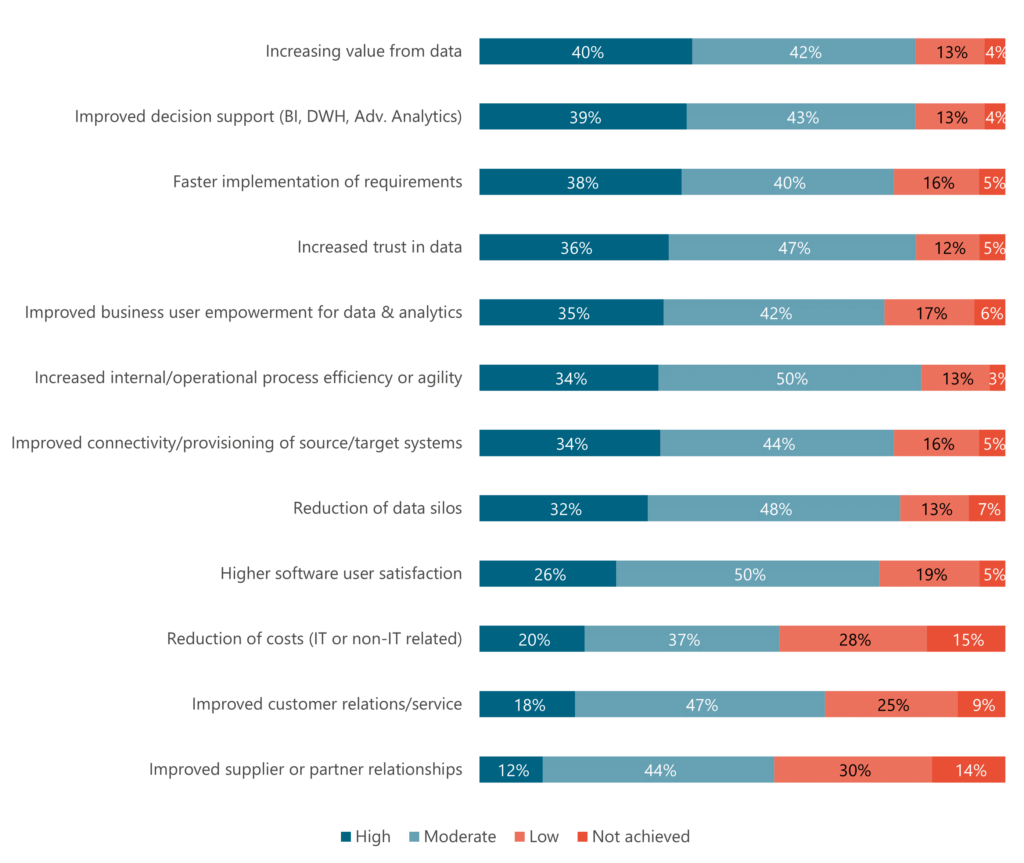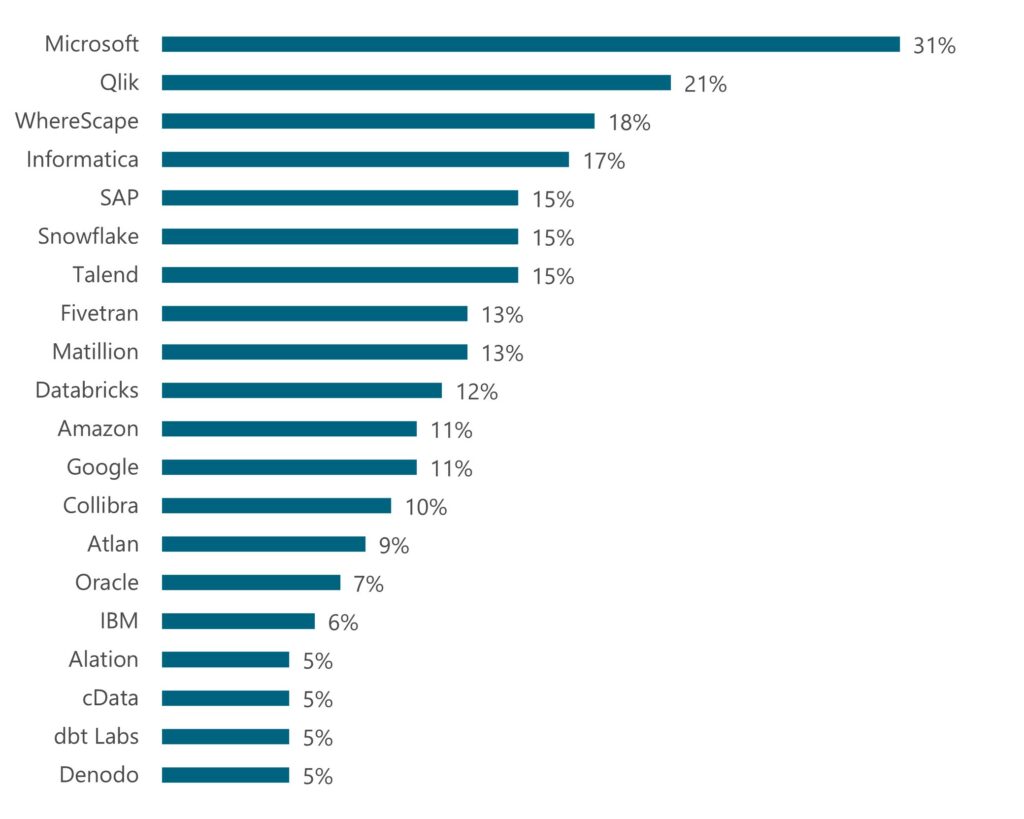Generating Value with Data: World’s Largest Survey Reveals Data Management Trends
BARC has released The Data Management Survey 24. Approximately 1,000 individuals from around the world participated in the largest survey of its kind. The findings offer detailed insights into current data management trends and how companies address their data-driven challenges and goals. Based on the responses, 21 software solutions were subjected to a thorough analysis.
The study shows that a significant portion of the respondents have use cases in areas such as data warehouse automation, data preparation, self-service analytics, data governance, data cataloging and data intelligence. The main benefits of data management, as cited by users, are “increasing value from data” (40% of respondents achieved this to a high degree) and “improved decision support” (39%).

Figure 1: Business benefits achieved through the use of data management software (n=664)
43% of those surveyed have not made significant – or any – cost savings from using data management software. The benefit of software, therefore, appears to be more in generating value from data, building trust in data and creating more efficient processes for the use and development of data. Hence, data management is recognized as a foundation for optimized data utilization.
Timm Grosser, author of “The Data Management Survey 24” and Senior Analyst at BARC, commented on the findings: “The results highlight the dynamic nature of the data landscape. They not only offer a roadmap for businesses but also underscore the paramount importance of aligning technology with clear business objectives. Sound data management can create measurable business value.”
Software market
The study also surveys participants about specific software usage. In software selection, Microsoft is most frequently mentioned as a contender in the software selection process. 31% of the vendor employees responding to the survey named the tech giant as one of their main competitors. In contrast, SAP, despite its widespread use, especially in German-speaking regions, is cited less frequently (15%). Through strategic acquisitions – for example, the data integration specialist Talend – Qlik has established itself as a significant player in data management. The portfolio of the original data visualization provider now spans areas such as data integration, data warehouse automation and governance.

Figure 2: Top competitors of data management vendors (n=94)
The survey also reveals changing trends in software purchasing. Whereas platform features were once very significant software selection criteria, support for use cases has become increasingly important today. This reflects a more harmonious understanding between IT’s grasp of business use cases and the actual needs of the business.
The insights from this survey paint a comprehensive picture of the current state of data management and serve as a guide for both companies and providers to shape their strategies and decisions in the future.
